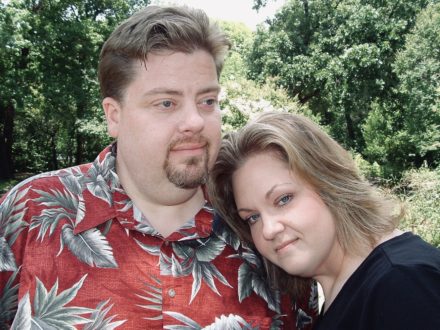Don’t Tell Me I Can’t
Cole Summers’ parents knew he was exceptional when, as a 3-year-old, he changed a tire on their truck. At 4, he tore down (and helped rebuild) their truck engine. After watching YouTube videos of Warren Buffett, Elon Musk, and others explaining how to gain wealth, he started his first business (breeding and selling rabbits) at 7. At 9, he bought a 350-acre ranch. A year later, he bought a house.
He never attended school, watched TV, played video games, or accepted pessimism. In May 2022, at 14, he self-published his autobiography, Don’t Tell Me I Can’t, An Ambitious Homeschooler’s Journey. The book pulls readers into a view of living that few people can even comprehend today: A family that believes in freedom, responsibility, play, hard work, family love, and letting life teach its own lessons.
While his dad’s confinement to a wheelchair and his mom’s blindness might have shaped a fearful and overprotective parenting style, they took the opposite path. They encouraged independence, risk, and reaching for the dream. Cole said he has used nail guns, power saws, and other power tools for as long as he can remember.
I really enjoyed watching Cole press life’s limits. The book’s title captures his attitude. Who says children cannot own land, vehicles, and businesses? He has owned them all. As a child.
As an 11th birthday present to himself, he bought a John Deere tractor with a front loader, forklift, backhoe, disc harrow, and other tools. For his 12th, he dug a well. A dry one. Cole chalked that up to “education.” As he wrote, “When I measured the well when I was buying my ranch, I measured late in the fall. Had I known better and measured it in the summer, it would have been dry, and in the two years since I measured it, extreme drought led to two years of the water table dropping six feet both years.”
His education wasn’t finished. His business depended on his rabbits ending up on restaurant menus. So, with restaurants shuttered, COVID-19 killed his business. Part of the astonishment of this book was in watching the way the family faced crises. Repeated hospitalizations for Cole’s dad, a bone dry well, hauling water from the neighbors for 9 months, car and pickup breakdowns. But what resilience! When Cole got hit with a big tax bill, he got mad and made researching corporate tax law his 5th grade math class.
Although it obviously was not included in the book, his story ends with a true gut-punch. A month after his book hit the market, Cole died in a kayaking accident. He was 14. At the time of his death, he was working on a plan to preserve the depleting aquifer beneath his Great Basin Desert ranch near Beryl, Utah.
The book is not great literature; it’s easy to believe a 14-year-old wrote it. But I hope thousands of kids and their parents will read it. Don’t Tell Me I Can’t reveals the power and confidence of a straight-ahead life. And Cole’s death does not invalidate bold living. His was not a “life cut short;” he did not leave us “too soon.” He filled up a life, his life, just as it was designed and destined by his Creator.
Of course, Cole was an astonishing kid. But, as I read his book, I kept wondering if his creativity and success are just normal reflections of what it means to be human. Maybe he stood out because he avoided the constraints of dismal bureaucracies, entertainment, addictions, and negativity.
For me, the real message of this book is that experts are overrated, fears are overblown, and thousands of audacious young builders are overcomers. The dawn of their day is breaking.
Don’t Tell Me I Can’t Read More »



